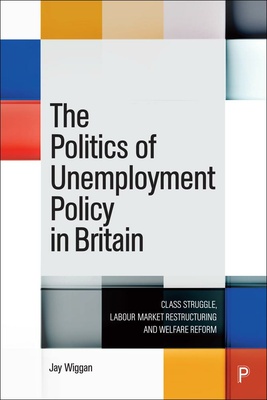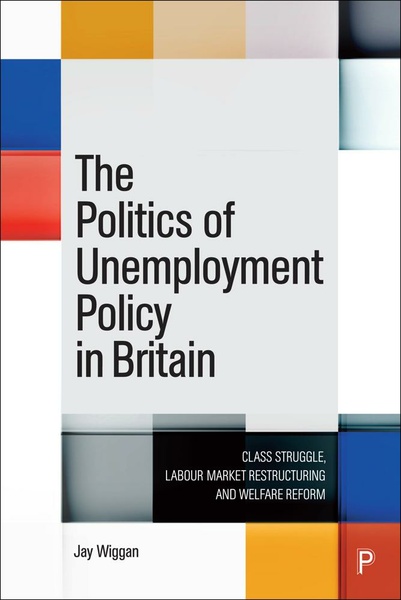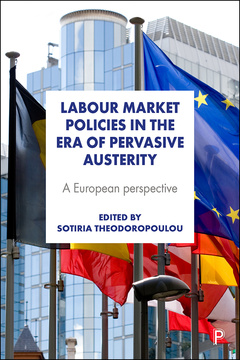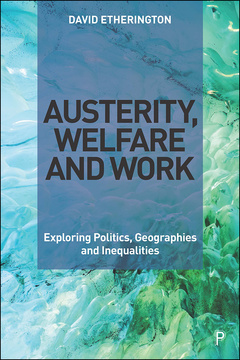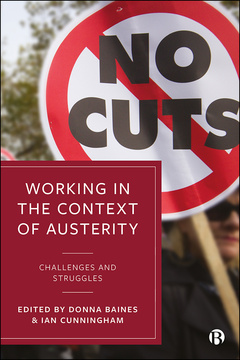The Politics of Unemployment Policy in Britain
Class Struggle, Labour Market Restructuring and Welfare Reform
By Jay Wiggan
Published
Jul 26, 2024Page count
288 pagesISBN
978-1447366119Dimensions
234 x 156 mmImprint
Policy PressPublished
Jul 26, 2024Page count
288 pagesISBN
978-1447366133Dimensions
234 x 156 mmImprint
Policy PressPublished
Jul 26, 2024Page count
288 pagesISBN
978-1447366133Dimensions
234 x 156 mmImprint
Policy PressThis book provides an account of the evolution of social security and employment policy and governance in Britain between 1973 and 2023. It explains how this remaking of policy and governance shaped, and was shaped by, the transformation of the labour market and power of claimants and workers.
Advancing a class-centred explanation, the text situates contemporary working age active labour market policy as the contingent outcome of a long struggle over curtailment of labour autonomy and the challenges arising from policy ‘success’ for securing social cohesion, state legitimacy and better economic conditions for growth.
“An invaluable analysis of the history of state unemployment since the 1970s. Wiggan explains why ruling elites abandoned full employment as a policy objective, and how the move, since 2010, towards a regressive labour regime is shaped by wider austerity politics.” David Etherington, Staffordshire University
“The story of shaping social security policy and employment institutions from the shifting logic of 'gendered full employment' to 'full employability' is explored through a valuable lens of class struggle. Wiggan eloquently traces how austerity, managerialism and marketisation hastened the journey on the low road to activation in ways that preserved the authority of capital. Essential reading for anyone who wants to know why things are as bad as they are.” Mary Murphy, Maynooth University
“This thorough, detailed text lays bare how policy underpinning social security benefits and employment programmes for unemployed people has evolved over the last 45 years in the UK.” Martin Power, University of Limerick
Jay Wiggan is Senior Lecturer in Social Policy in the School of Social and Political Science at the University of Edinburgh.
1. Introduction
2. Labour Commodification, the State and Class Politics
3. Labour Market Restructuring and the Changing Class Composition of Labour
4. Labour Autonomy, State Conciliation and the Emergence of Special Employment Measures: 1973 – 1979
5. A Cautious Offensive: Class Decomposition, Disorder and the Transitional Labour Market Policy Regime: 1979 – 1985
6. The End of Conciliation and Social Concertation: Dis-Embedding Labour 1985 – 1989
7. On the Offensive – Enterprise, Employability and Selective Activation: 1989–1997
8. Inclusive Employability, Consolidation and the Progressive Market Liberal Turn: 1997 – 2004
9. Disciplinary Inclusion and Extensive Labour Utilisation: 2005 – 2010
10. Austerity and the Imposition of Work Discipline: 2010–2016
11. Consolidation and Labour Market Policy Continuity in the Shadow of Crisis: 2016–2023
12. Concluding remarks







